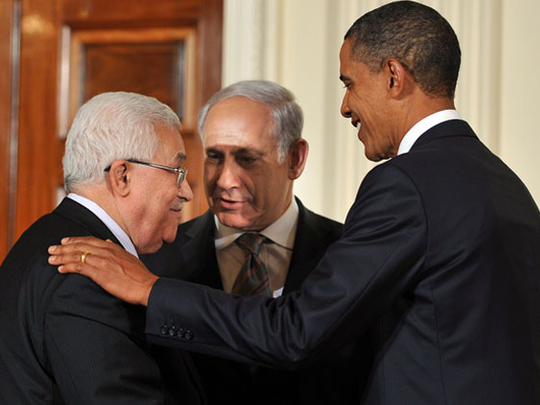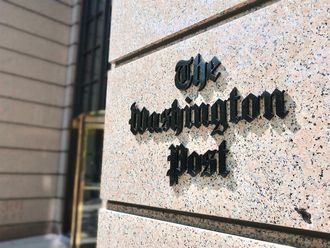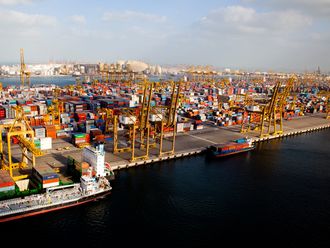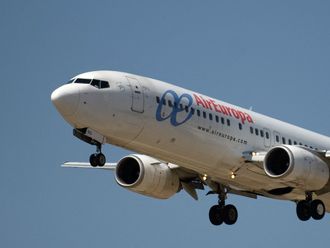
Palestinians will begin heading home a year from now to reclaim property in their homeland, which they have not seen for 62 years since the state of Israel was established there. They will be welcomed at the border by Israeli Prime Minister Benjamin Netanyahu, Israeli Foreign Minister Avigdor Lieberman and thousands of cheering Israelis.
Much to their joy, the Palestinians will discover that Lieberman has relinquished his house in a colony on the West Bank, which Israel has occupied since the 1967 Arab-Israeli war. But they will have to wait and see whether their own homes, in Haifa or Nazareth for example, will still be standing, along with their traditional lemon, olive and fig trees and grape vines, which their parents have longed to see since the beginning of their tortuous exile in neighbouring Arab countries and elsewhere.
More importantly, they will not be treated as second-class citizens — as has been the fate of their fellow nationals who remained behind when the Israelis took over their country in 1948.
All this may sound like a fantasy, but it is essentially what has been promised in the days before the Palestinians and Israelis, at the behest of their American hosts and in the company of two Arab leaders, begin their direct talks in Washington next Thursday in a very belated attempt to reach a final settlement.
Advantage Israel
There is no doubt that the two-day talks in Washington, to be continued elsewhere, probably in Cairo, represent a diplomatic coup for Netanyahu. He has managed to assemble the high and mighty without publicly revealing his cards in any form or fashion, much to the chagrin of the Palestinians. What has been most laughable to date has been the credit he undeservedly received for accepting the idea of a two-state solution, a point that was conceded by all parties decades ago.
Nobody knows which of the Israeli leader's often contradictory ideas he will put forward at the coming session in Washington. However, US Secretary of State Hillary Clinton has made an effort to clearly set out which issues — identified since 1979 — will be tackled by the two sides under the supervision of the Obama administration and the Quartet — the United Nations, the European Union, Russia and the United States. These are: borders, security, the Palestinian refugees' right of return and the status of Occupied Jerusalem.
Of course, there are many other issues that also need to be addressed. One prominent example is water, an issue that has bedevilled Palestinians in the West Bank, where some half a million Israelis have moved into illegal colonies, many replete with gardens and swimming pools, since the 1967 Arab-Israeli war. Others include a contiguous West Bank and a direct link with the Gaza Strip, now ruled by Hamas; and the demolition of the separation barrier that has denied many farmers access to their land.
Trump card
Netanyahu has raised several sensitive issues that have the potential to derail the negotiations. These include his call for a demilitarised Palestine and an Israeli military base on the Jordan River, which separates what would become the state of Palestine from Jordan, which has a peace agreement with Israel. More provocatively, he has once again insisted that Israel should be recognised as "a national state of the Jewish people" at a time when one-fifth of Israel's citizens are Palestinians.
All eyes will be focused on Netanyahu, considered a master manipulator, to see what he does about his shaky 10-month freeze on colony activity, which expires on September 26. Should he fail to extend the commitment, it is very doubtful that the talks will proceed any further, especially given that the Quartet's statement last week called on both sides "to observe calm and restraint, and to refrain from provocative actions and inflammatory rhetoric".
In short, despite the view that Palestinian National Authority President Mahmoud Abbas is in a weaker position than Netanyahu, primarily because of Abbas' failure to win over Hamas and other groups, his strength stems from two facts: He does not have to sign anything he cannot live with; and should he pull out of the talks it will be in US President Barack Obama's best interest to immediately seek to revive the process. Sponsoring a Palestinian-Israeli settlement would go a long way towards improving his performance in opinion polls, which is increasingly important as US midterm elections approach.
George Hishmeh is a Washington-based columnist. He can be contacted at ghishmeh@gulfnews.com.








